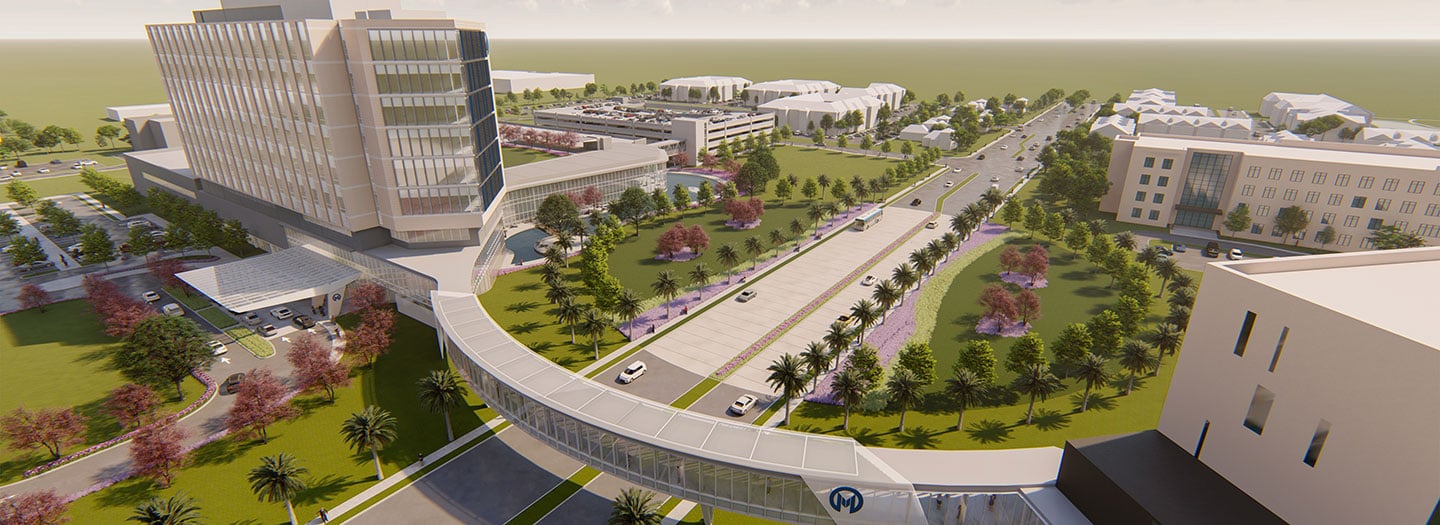
Transforming the Inpatient Surgical Experience
In order for patients to fully heal and recover from surgery, they need environments that empower and enable them to do so. The moments in a patient room following a surgery can be just as vital as the surgery itself. When Moffitt Cancer Center embarked on building a new hospital and envisioning a new inpatient surgical experience, we invited the best experts to help us: our patients and families.
Alongside architects and through multiple design sessions, Moffitt patient and family advisors provided feedback about their own inpatient surgical experiences. Our advisors emphasized that one of the biggest areas for improvement was the technology within inpatient rooms. Based on this feedback, the inpatient rooms at Moffitt McKinley Hospital will be unlike any other hospital before it.
The patient rooms will be equipped with virtual assistant technology, integrated pillow speakers and voice controls. Additionally, each room will be equipped with large television screens that will offer entertainment options and educational resources. Digital screens will also replace the standard dry-erase whiteboards known throughout all hospital systems. Information on the digital whiteboards will update in real time according to the patient’s medical records, allowing for patients and families to easily view dietary restrictions, allergies, medical concerns and more.
Another concern that patient and family advisors raised was around providers entering the room. Moffitt patients see a multidisciplinary team of providers and it can become confusing for them to keep track, especially as they’re recovering from surgery. The digital screens will also display the names of the Moffitt staff entering the room, so patients and families will always know the names of those treating them. Digital door signs will also be installed outside every room and updated in real time to display any precautionary measures.
While technology plays an important role for patients, we realize that caregivers are also essential to their healing. To make accommodations more comfortable for caregivers, we have increased the size of the guest beds within the patient rooms. To help caregivers recharge, the new hospital also features family showers, laundry facilities, a spiritual room, resource center, and expansive waiting areas with private alcoves for times of respite.
With these enhanced features, our hope is that Moffitt McKinley Hospital provides a healing environment that offers patients and families the same comforts of home.
